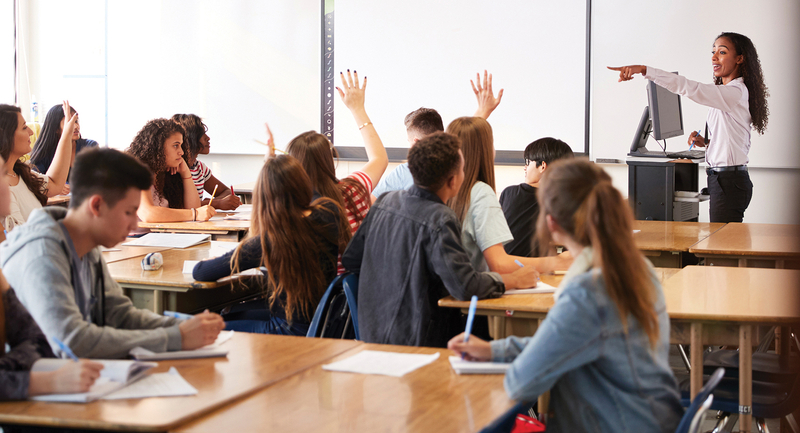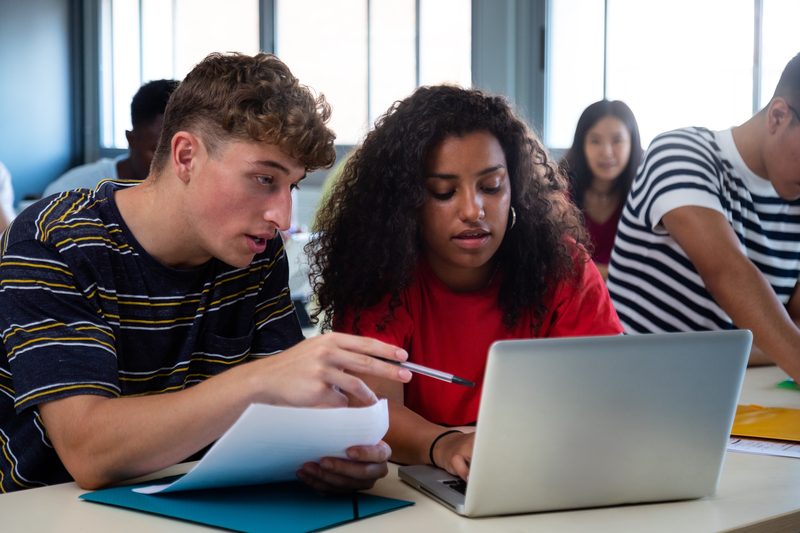One of my favorite psychology books is Daniel Kahneman's New York Times best seller, Thinking, Fast and Slow (Farrar, Straus and Giroux, 2011). This book is full of funky experiments that illustrate the author's theories about why we humans make some of our more illogical decisions. The experiment that most stood out to my educator self was the cold-hands situation. In it, participants were asked to dip their hands into 14˚ water, which, according to the book, is "painfully cold, but not intolerable." They then had to hold their hands under for 60 seconds before receiving a warm towel. Seven minutes later, the experience was repeated—but this time, the experimenter waited an additional 30 seconds before telling the subject to remove their hand. During this additional time, he secretly turned a valve that let in a splash of warm water. Not a lot, just enough to increase the water temperature by 1˚, which is just enough for the subject to detect the change. But, crucially, it still hurt. So in this second task, the pain was lessened, but prolonged.
Seven minutes later, the participants were asked which of the two experiences they would most want to repeat. Incredibly, 80 percent of the participants chose the "long" version, even though it meant longer discomfort! Kahneman uses this experiment to support his "peak/end" rule, which basically states that what we will most likely remember from an experience is its emotional "peak" and how it ends. This interpretive tendency can impact everything from uncomfortable medical procedures (make sure the last few minutes are less painful than the middle) to vacation planning (to feel refreshed, do the rigorous backpacking at the top of the trip and end with the beach relaxation).
I've found that this rule also has a lot to say for both classroom teachers and school leaders—especially as the end of this tumultuous 2020–2021 school year finally comes within reach.
Slow Teaching
For classroom teachers interested in discussing race, class, or any other "hot button" topic with students, for example, Kahneman's rule has an obvious application: endings matter. We know that our anticipatory sets are important, that we have to prepare our students for the vulnerability and openness that such rigorous discussions will require of them. We know that, in many cases, we have to convince our students to meaningfully engage with these sensitive topics, so we pay close attention to how things start. At the same time, scheduling pressures often make us OK with ending haphazardly.
A common example is the decision to call on that one last hand 15 seconds before the bell, knowing that the student called on is likely to rush his way through some forcefully abridged version of his idea so as not to inconvenience his classmates, who are eager to get out of this class and into the lunch line. The "peak/end" rule holds that this last harried moment (classmate rushing, teacher yelling for everyone to "be respectful," etc.) is likely going to negatively influence how students remember the whole conversation, potentially undercutting any big breakthroughs.
With that in mind, it might be best to assure that last-minute participant that we will give their contributions the time and patient attention they deserve—tomorrow. And we might instead dedicate the precious last few seconds to praising a specific aspect of discourse that the class has excelled in, even replaying a highlight or two. We might even start the process of hyping up the next day's challenges and opportunities. Essentially, send them home with something to look forward to.
And it's not just how we teachers end big conversations; it's how we end important interactions with our students. When we pull a student aside to check them for an inappropriate remark, do we end by identifying precisely what we have seen in their behavior that shows them to be so much more than this moment? Or when a student stays after class to ask a lingering question that they felt scared to bring up in class, do we end by celebrating the bravery it took to pull you aside?
Lessons for Leaders
The same "peak/end" lessons apply to school leaders. How well do your staff meetings end? When, for instance, you bring an equity issue to your teachers, have you structured the session to end with actionable steps to begin solving the problem? This is especially important if the "peak" portion of the analysis has required the detailed introspection and intense vulnerability necessary to check one's privilege or question long-established practices.
How well do your observations end? What are the last words you say to a classroom teacher after witnessing a lesson that tries—and fails—to be culturally responsive? While communicating your high standards, do you reassure the teacher about your support along the journey to getting better? How do your own interactions with students, which tend to happen during the students' best or worst days in school (as you either mete out discipline or celebrate some great accomplishment) end? Do you take that extra moment to acknowledge something that makes them feel like the interaction was more than a detached visit from "on high?" Do you ask one more question that's not about their school performance? Or provide a quick revelation about yourself that rounds out their perception of you? All of these can be a splash of warm water that makes all the difference.
A Difficult Year
And finally, back to the 2020–2021 school year: It matters how we, together, end this thing. We've experienced a year-long deadly pandemic, a summer of racialized brutality and seismic resistance, a fraught presidential election and an insurrection, and a sudden bath of virtual learning that, for many of us who find sustenance in relationships, more often than not felt ice-cold. We could use a splash of warm water.
In these last two months, it matters how we treat each other. Leaders, this may not be the time to announce that new initiative that you've been dreaming up. Your staff is tired. What can you take off their plates? Classroom teachers, your kids have just about made it. Clear the field. Offer that extension. Excuse that assignment. Round up that last project grade if it gives a kid's final report card grade a bit of a boost.
We all have the power to impact how the folks who share our school communities remember this time. Let us, by showing grace, make the memory of this stormy school year just a bit more peaceful.








